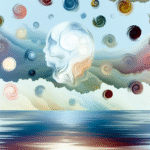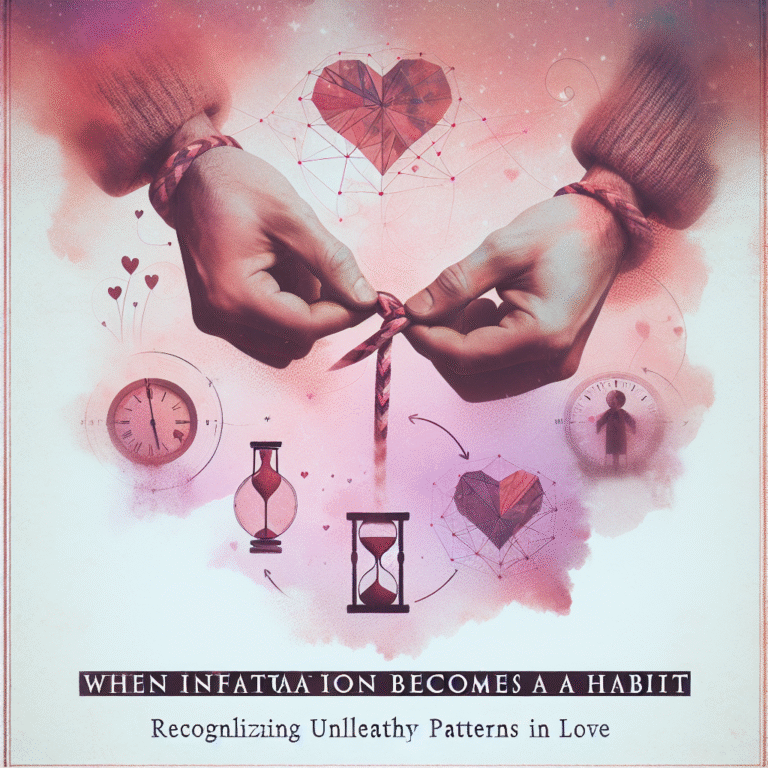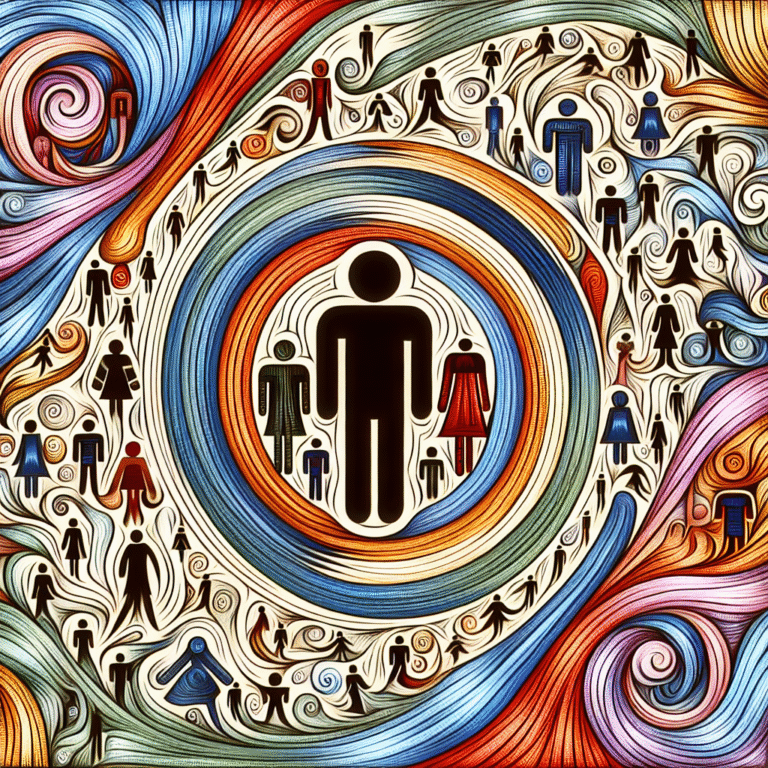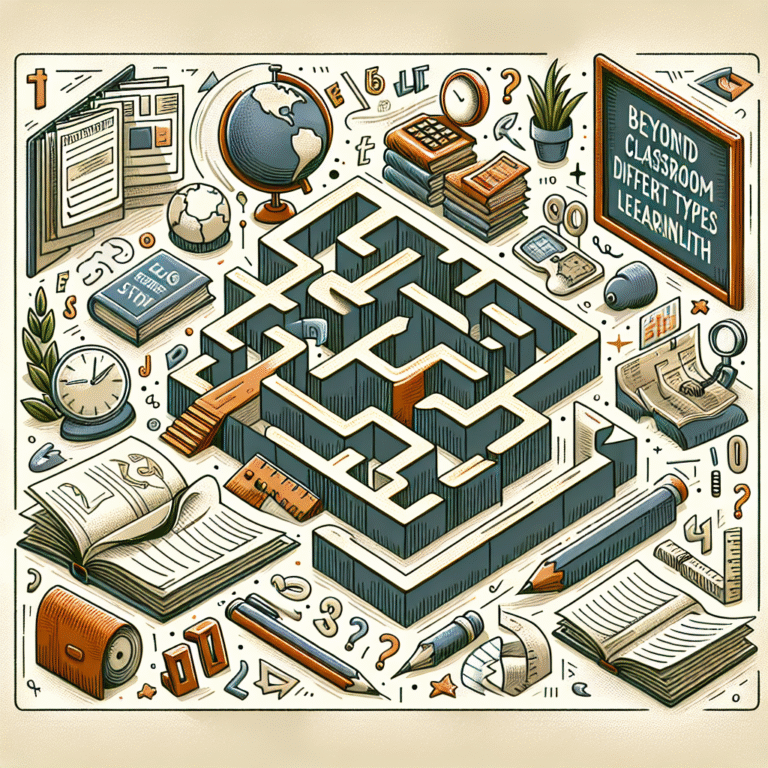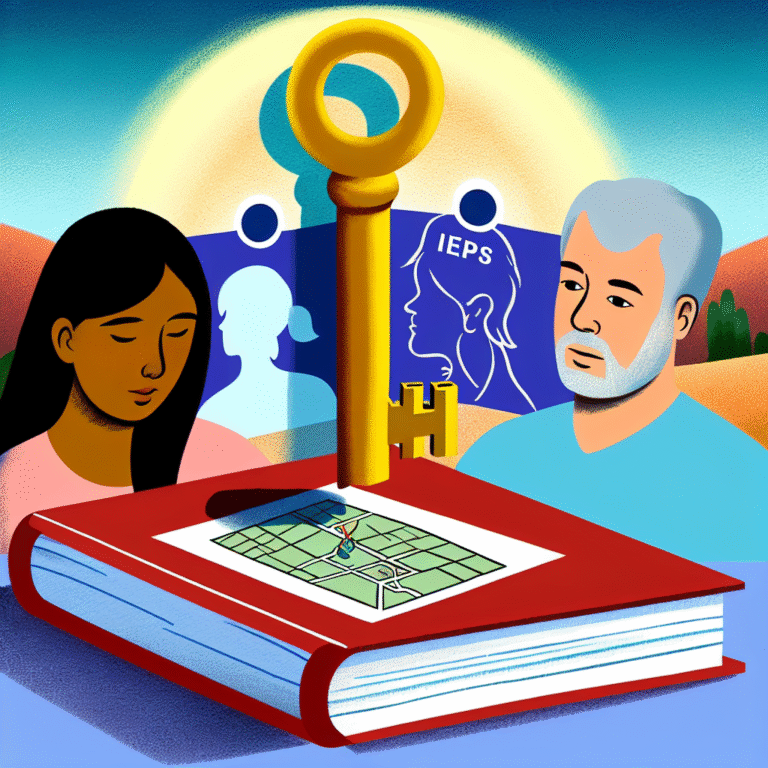
Introduction: The Allure of Infatuation
Everyone has felt it at some point: the exhilarating rush of infatuation that makes your heart race and your thoughts spin. Those initial butterflies, the constant daydreaming, and the dreamy glances can feel intoxicating. But what happens when that spark fades? The phenomenon of infatuation is more than just a fleeting moment; it’s a complex blend of emotions, chemical reactions, and psychological dynamics. By diving into "Fleeting Feelings: Exploring the Temporary Nature of Infatuation," we can unlock not only the enticing beauty of this emotional state but also its eventual decline.
Infatuation often masquerades as love, capturing individuals in a whirlwind of passion that can be both exhilarating and confusing. Understanding its temporary nature can empower us to navigate romantic relationships with a clearer perspective. After all, if we can dissect these fleeting feelings, we can better evaluate our emotional investments, leading to healthier relationships in the long run.
The Psychology Behind Infatuation
What is Infatuation?
Infatuation is often characterized by intense emotional and physical attraction. It happens when we project our ideals onto someone, deeply connecting our fantasies to the realities of who they are. It can manifest as overwhelming happiness when they text you or a longing ache when they are away.
Chemical Factors
When infatuated, our brains release a cocktail of chemicals including dopamine, norepinephrine, and oxytocin. Dopamine induces feelings of pleasure, causing us to associate our crush with joy. Norepinephrine heightens our senses, making everything feel more intense, while oxytocin—known as the "bonding hormone"—works on a more intimate level.
| Chemical | Effect |
|---|---|
| Dopamine | Euphoria, pleasure |
| Norepinephrine | Increased excitement, focus |
| Oxytocin | Bonding, intimacy |
The Phases of Infatuation
1. The Initial Attraction
This phase consists of curiosity and intense desire. Your heart races whenever you see them.
2. The Honeymoon Phase
During this stage, your feelings are overwhelmingly positive. You may neglect other aspects of your life—friends, work, and hobbies—focused entirely on the object of your infatuation.
3. The Realization
Gradually, the initial spark fades. You become aware of differences that seemed negligible at first, and doubts may begin to creep in.
Case Study 1: The Lasting Power of a Crush
Scenario: Sarah, a 28-year-old graphic designer, becomes infatuated with her new coworker, Tom. During the first three months, her work performance declines as she spends more time daydreaming.
Analysis
After realizing her infatuation wasn’t developing into a deeper emotional connection, Sarah did some soul-searching. Her story is a valuable reminder that while infatuation is exciting, it often doesn’t lead to the profound love many desire.
Recognizing the Signs of Fleeting Feelings
- Obsession with the Ideal: When you base your feelings more on fantasies than reality, it’s a sign of infatuation.
- Anxiety: Constant intrusive thoughts about the person can create irrational fears that can result in anxiety.
- Physical Symptoms: The rush of excitement may lead to insomnia or jitteriness, which are common with infatuation.
The Role of Society and Media
Cultural narratives around love can influence how we perceive infatuation. Movies, songs, and books often glorify these fleeting feelings, presenting them as everlasting passions. However, they fail to show the inevitable decline that often follows.
Case Study 2: Hollywood’s Hype
Scenario: The frequent romances of Hollywood stars often depict intense infatuations that lead to quick engagements or breakups.
Analysis
These narratives can distort our understanding of love and infatuation. A deeper analysis shows that real life, unlike movies, involves complexity and time. Infatuation can lead to misleading expectations in relationships.
Why Do Fleeting Feelings Matter?
Recognizing the transient nature of infatuation is crucial for several reasons:
- Self-awareness: Understanding your emotions can promote healthier relationships.
- Realistic expectations: Knowing that infatuation typically wanes can help you build a stronger connection based on genuine affection rather than idealized fantasies.
- Growth Opportunities: Embracing the lessons from these fleeting moments allows you to grow emotionally.
Taking Action: Transitioning from Infatuation to Connection
- Self-Reflection: Take time to assess your feelings. Are they grounded in reality?
- Communication: Open dialogue with the other person can help both parties understand their feelings.
- Give It Time: Allow your emotions to settle. True love often requires patience and nurturing.
Conclusion: Understanding the Value of Fleeting Feelings
"Fleeting Feelings: Exploring the Temporary Nature of Infatuation" teaches us invaluable lessons about the ephemeral nature of our emotions. By recognizing that infatuation can lead to growth and deeper emotional connections, we equip ourselves to handle love more wisely. Remember, while infatuation can feel overwhelming, it also offers a unique perspective on our desires. Embrace these temporary feelings while remaining grounded in reality, paving the way for deeper, more meaningful relationships.
FAQs
1. Are infatuation and love the same thing?
No, infatuation is characterized by intense, often superficial attraction, while love encompasses deeper emotional connections and commitment.
2. How long does infatuation usually last?
Infatuation can last anywhere from a few weeks to several months before fading or evolving into a deeper bond.
3. Can infatuation be harmful?
Yes, infatuation can distract individuals from personal responsibilities and lead to unhealthy relationship dynamics if not managed correctly.
4. What are some signs that my feelings are just infatuation?
Signs include obsession with the ideal, feelings of anxiety, and more focus on fantasies than reality.
5. How can I differentiate between infatuation and true love?
True love often involves mutual understanding, respect, and consistent emotional support, whereas infatuation is typically fleeting and superficial.
By diving into this exploration of fleeting feelings, we not only appreciate the ride of infatuation but also learn to navigate our emotions with a clearer mind and a fuller heart.


